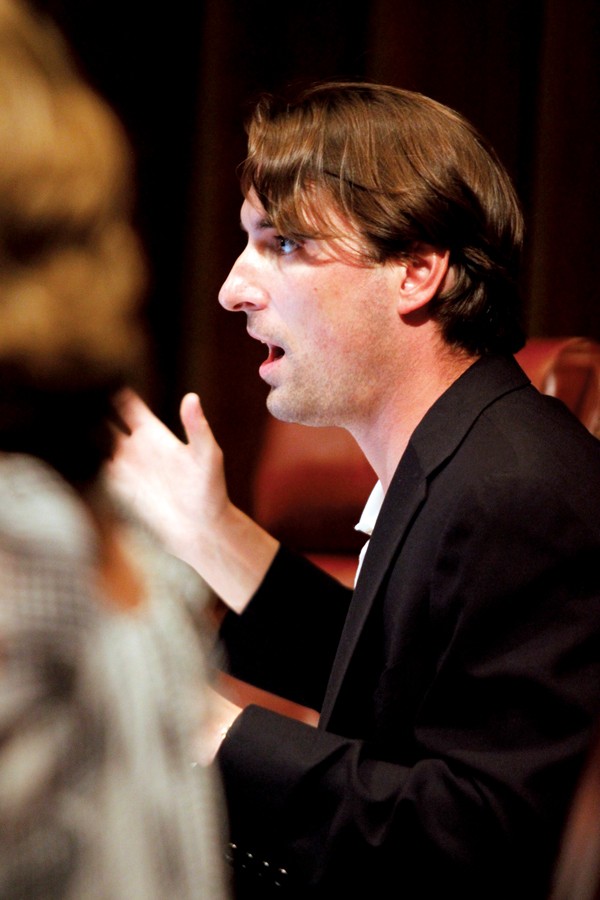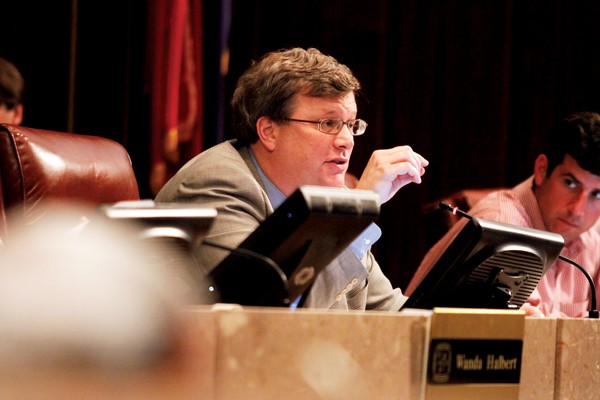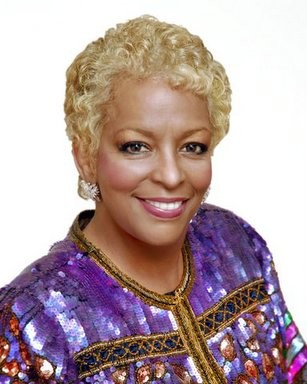Last year, the Flyer staff decided to do a “Who’s Who in Memphis Twitter” issue. It was a lot of fun, generated some buzz, and made us think, “Hey, we could do this every year.” Except, we can’t. We tried, but really, who wants to read a list of names that would mostly be repetitive from the prior year? Plus, Twitter has become so ubiquitous that picking “Who’s Who in Memphis Twitter” would be like picking “Who’s Who in Memphis Facebook.” Impossible. All we would be doing is picking the people we follow.
Twitter is now so mainstream, potential employers ask for your handle in job interviews. It’s a very rare politician, journalist, comedian, musician, sports figure, etc. who isn’t all over Twitter these days. It’s become an invaluable tool for businesses and for link sharing and breaking news. And if you haven’t watched a Grizzlies or Tigers game with your Twitter peeps, you’re missing half the fun. Twitter is everywhere and all of you deserve prizes. Except for that one guy. We hate him.
Soooo, instead of a “Who’s Who in Memphis Twitter,” this year we decided to do a bit of a potpourri. We picked some local twitterers and asked them to talk about how they use the medium; we interviewed some local celebs 140 characters at a time; we picked some of our favorite tweets and twitterers. Memphis Twitter is a rich world of information, snark, and news. We’ve barely scratched the surface.
— Bruce VanWyngarden

Carrie Brown-Smith, Early Adapter
Long before Twitter evolved into the ubiquitous social network and microblogging service it is today, Carrie Brown-Smith was dishing out tweets. An associate professor in the University of Memphis’ journalism department, Brown-Smith got wind of the tool early and decided to incorporate it into numerous courses she teaches. She continues to maintain a strong presence on Twitter.
Flyer: How did you get introduced to Twitter?
Carrie Brown-Smith: A friend of mine was working for Apple at the time; he loved it and kept telling me to use it. Like most other people, I set up an account then didn’t use it for the next two months. It was like, “Okay, now I’m on here, but I don’t see why anybody would want to use this.” Much later, I realized it was really useful.
How often are you on Twitter?
I try to limit myself, because you can get sucked in and end up spending your whole day there. Usually, when I’m taking a little break in the middle of the day, waiting in line, or doing something where I can hang out on my phone a little while, I might spend 10 minutes scanning through my feed. If I come across a link or photo or something that I think is interesting, I’ll just hop on there and share it. At least once a day I’m hopping on there — sometimes more.
In what ways has Twitter evolved since you began using it years ago?
A lot more people are using it now. At the beginning, I think it was kind of this big stereotype that people were only going to use it to tell other people what they had for breakfast. But as time went on, people started to see the utility of it for news and information and for connecting with other people. If you look at a lot of job descriptions today, often they include, “This person should know how to use Twitter and social media.” It’s more mainstream than it was a few years ago.
Does it matter what your avatar looks like?
That’s really important, because I think when people see that little blank egg, they also think that it could be a spam account. Even if it’s not your own picture, [it’s good to] have something there that personalizes it; it just makes you a lot more legitimate and credible.
Any advice for making the best out of those 140 characters?
Obviously, a lot of links get shared on Twitter, but I think some people forget that they can do that. If you want to share longer thoughts, you can share a link to a blog post or an article. People have really short attention spans today, so I think it can be a good discipline to practice writing something that catches people’s attention, even though you don’t have a lot of characters.
— Louis Goggans, @Lou4President

CA Commenter‘s Greatest Hits
“Memphis is a war zone of thugs, crooks in suits, and cyclists. I ain’t too fond of Barry Obummer neither. I am the Commercial Appeal commenter.”
So reads the online bio of the most trenchant Memphis satirist on Twitter. This anonymous wit has perfectly nailed the Memphis-hater set. It’s almost scary, it’s so brilliant. That’s my opinion, anyway. Judge for yourself, libtard:
• Lyft sounds like left so I’m starting Ryght, car service for conservatives. Hannity & Limbaugh on the radio non-stop. Burb travel only.
• Maybe on the ballots they could put pictures of the candidates, you know, to see if they have trust-worthy eyes…that’s all…ahem.
• It’s perfect that the trolleys will return this Autumn, right when it starts to get cooler & a nice fire will be warm & inviting.
• Been doing the 30 day #CarFreeMemphis challenge. 1, by using my Hummer which is an SUV not a car & 2, by not actually going into Memphis.
• Sen. Kelsey: What about a bill to have tornado sirens blare Dixie? You’re welcome.
• It sucks that Bring Hannity to TN & Turn Gays Away bills are fine but my Let Duck Dynasty Hunt Peabody Ducks idea was “too out there.”
• Hey @MemphisFlyer, I left the Memphis Press-Scimitar box at your place so you could learn what a real newspaper looks like.
• I wish I would be hired as a coach of a Memphis basketball team because it means you’re guaranteed to leave Memphis in a few years.
• So keeping a building from the 19th Century is a noble cause, but keeping an attitude from that era is wrong? Hypocrites.
• 10 years ago Hurricane Elvis swept through Memphis and Obama did nothing about it. #NeverForget
— Bruce VanWyngarden, @sylamore1

Beth Spencer, Animal Rights Activist
With more than 1,800 followers, Beth Spencer has made a name for herself on Twitter. For more than four months, Spencer has been tweeting every day about the changes going on at Memphis Animal Shelter (MAS) — to the Shelter and Mayor AC Wharton. We sat down with Spencer and asked her how she thinks Twitter can bring about social change.
Flyer: How often do you use twitter?
Beth Spenser: It depends on my mood, I’d say anywhere from 3 to 100 times a day. If something really makes my eyes roll, then my number of tweets increases. The amount of time I spend on Twitter also varies with every time my eyes roll, but on average I’d say about four to six hours a day. When I’m not on Twitter I’m either working or I’m watching Frasier.
What do you normally tweet about?
Normally I tweet about animals, pop culture, and social issues. Today I tweeted about Miley Cyrus and I tried to get the mayor to talk to me. I’ve been tweeting to the mayor for four months now, every day, and I’m not doing it to aggravate him or to harass him, but a lot of times people will retweet what I send to him and it raises social awareness.
Do you think Twitter can bring about social change?
I think it helps people band together. I don’t think it happens in Memphis as much as it does in other places, but a lot of times people can get direct answers on Twitter, and I think ideally it holds those in power more accountable. Twitter gives people a platform that otherwise wouldn’t have one, and I think that’s key to bringing about social change.
Once I sort of “catfished” Memphis Parks, because they run Memphis Animal Shelter. They had been avoiding my tweets as myself so I made a fake name called Mark in Memphis. I made the photo a black male and tweeted them asking about the hour change at MAS. They weren’t responding to any of my tweets or any of the activists that had been asking them questions, but when someone they didn’t recognize tweeted them they answered my questions right away.
Who are you following? Who do you rely on for up-to-the-minute information?
I follow the Memphis Flyer, of course, Miley Cyrus, Jen Sized, the fake Prince Mongo account, and some other local parody accounts like the Midtown Kroger one. I also follow a lot of the usual Memphis media accounts.
— Chris Shaw, @ShawMemphis
Two Funny Twitterers
Twitter is funny (well, y’know, sometimes). Follow the right folks and laughs cascade down that Hootsuite column like Niagara Falls. Twitter, with its 140-character limit, is best for quick hits and one-liners, not for long, story jokes. Think Mitch Hedburg not Bill Cosby.
Ed Arnold and Katrina L. Coleman are two very funny Memphis Tweeters. Arnold is a journalist with the Memphis Business Journal and social media bon vivant. Coleman is a comedian and founder of the Memphis Comedy Fest.
I interviewed them both, on Twitter, of course. Those conversations started fine but were hijacked by friends, other comics, a paranormal mystery writer, and a Memphis City Councilmember.
Of course when I say, “hijacked” that just means Twitter worked exactly as it was designed.

Katrina L. Coleman
(with Shea Flinn, sort of)
Flyer: So, you‘re a comedian and a mover in Memphis comedy (in real life). Why Twitter?
Katrina L. Coleman: It’s a public sketchbook, and a great exercise in brevity, as well as exposure. I have (five minute) bits that started with one dumb Tweet.
Also, constant input. I’m like fuckin’ Johnny 5. News, information, entertainment 24/7. It’s magical for someone like me.
Your style seems tough and self deprecating. True?
KLC: Hell yeah, it is, and I’ll fight you to prove it, but not like in a winning way. (P.S. That’s going in my bio.)
Sounds pretty Memphis to me.
KLC: Totally. Affects all of our arts. (Full disclosure, grew up in West Memphis, which smells like poo. Memphis is home.)
Shea Flinn: I just want to state: the fact that I am NOT being interviewed for the comedy part of Twitter hurts. Hurts bad.
KLC: NOT EVERYTHING IS ABOUT YOU, FLINN. Ugh. D-I-V-A
SF: Sure take the “funny” crown and then hurl insults. Standup comedy tax, up next!
What‘s it take to be funny in 140 characters in the huge social environment?
KLC: Good spelling, largely. I go the way of sincerity, post what I like. Some people are more jokey joke. Just … entertain yourself.

Ed Arnold
Flyer: So, is brevity the biggest key to being funny on Twitter?
Ed Arnold: It’s not crucial, but it helps. I think a good stand-up comic needs at least a laugh per minute, often more. Twitter forces that. As a consumer of comedy, I love guys who could kill with a sentence. The best Twitter accounts nail that.
Who‘s that in your profile pic?
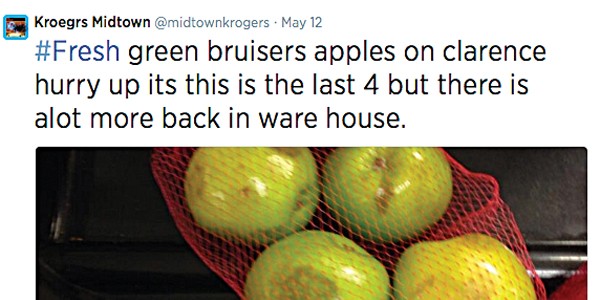
Spud Web and Manute Bol, two of the best unintentionally funny NBA players of all time.
Is Memphis funny on Twitter? Are Memphians funny?
We’re a tough group. The #ImSoMemphis tweet game had as many terrifying jokes as playful ones.
I think it‘s that underdog thing we do/love so well here. Finally, where are you on the whole Nancy Kerrigan/Tonya Harding thing?
Look, no one deserves a stick to the kneecap, but if I’m getting drunk … Tonya all the way.
— Toby Sells, @tobysells
Let’s Go Kroegrs-ing!
There’s something universal about discussing your neighborhood grocery, and perhaps that’s what makes the Midtown Kroegrs (misspelled on purpose, but the handle is @midtownkrogers) parody account so appealing. Written from the perspective of a faux Kroegrs social media team for the Union store and filled with misspelled words and often-nonsensical tweets, the daily musings fill us in on what’s going on with faux employees (like the day Tony vomited by the cereal boxes because of his nervous stomach or the time Janice had to get a tattoo “cut off her chest”) and faux specials.

Shortly after the account went live last fall, the real Kroger corporate headquarters ordered the account suspended. But with a little misspelling of the store name, it quickly bounced back and garnered a fanbase of more than 2,500 followers.
The Kroegrs social media team took a few minutes to answer some of our burning questions. (All misspellings are intentional.)
Flyer: What makes Midtown Kroegrs so special?
Midtown Kroegrs: We dont know just its so special here its a good mix mash of folks her excapt new Glenn in truck docks he tranferred from nasty Cleavelands.
Recently, you announced that you were hiring because your employees were “sooo old.” What do you look for in a potential employee?
Yes were still allways needing #fresh employs faces who can work late and have a Go get him attitued just apply upfront by the Rug Doctors.
The employees get a lot of shout-outs on Twitter. Have any complained about the exposure?
Lol no if you remember Steve he got fired she said he told Karen he was going to sue her haha yeah right but he works at Mapcos now.
Captain Jerry gets the #freshest fish! Where does he get it from?
Thanks all Krogers #freshcatch is local fish that Jerry finds it somewere, the rest is China freezer samlon then of course theres lobster.
What’s the craziest incident King Don, the security guy, has dealt with there?
Guess what old Don got caught clowning off on the heart pressure chair at Rite Aids Danny tried to fire him but Mr Charley said no you cant.
Janice recently got an old tattoo “cut off her chest.” Has she made a full recovery?
Yes shes is back! But no shes gone she came by and pickedup a box of #otter pops they help out her sad depression mindgrain head aches :).
What‘s been your all-time favorite find from the Manager‘s Special shelves?
Ok well we found 1 Lady Sped Sticks some a bunch of pinchless can Crab’s meat, 2 tore up puff cereal kid bags and a sorted color hair comes.
Tell me about your store specials this week. Any must-have items?
Yes you can defiantly saveon our Morning Farm Vegatrian grill chops, baby freezer cobs #fresh skimp milks and Carpi Suns metal pouch juices.
— Bianca Phillips, @biancaphillips
Politicians, Thought Leaders, and Trolls
On Monday, July 14th, the Commercial Appeal‘s Wendi Thomas posted to her blog about the dress codes at the Montreal, Quebec, location of Bar Louie. The Memphis franchise had been through a controversial revision of its own dress code after allegations that the code was targeting African Americans. Thomas wrote about how people of color feel welcome or unwelcome in spaces based on their race. She linked to the post on her Twitter account, and several people joined in, including Memphis City Councilman Shea Flinn. By Monday evening, it appeared that the two were engaged in a digital kerfluffle. The points of the argument aside, their back and forth and the chorus of folks who were jumping into the conversation revealed the good and the bad of the Twittersphere.
The two primary participants are sharp-witted public figures who were using Twitter to talk about an important social issue in real time. There were no editors to guide the dialog. There were no advertisers or campaign managers to stop what was happening. There was a distillation of opinion that few established media can foster or deliver.
“I was thinking about this,” Thomas said. “One of the reasons that exchange worked — if we can say it worked — is that he and I know each other in real life. If we ran into each other on the street, we say, hey, the side-kind of church-hug greeting. In discussions that I’ve had — and even people who entered that discussion — who I didn’t know, I’m much more leery of what the intent is behind the questions. Are they honestly trying to engage? Or are they trolling?”
“At least from my point of view, we were just having a conversation,” Flinn said. “The weird part about having it in that setting is that there were people on both sides who were interjecting and making it more argumentative than it was between us. We were just having a discussion.”
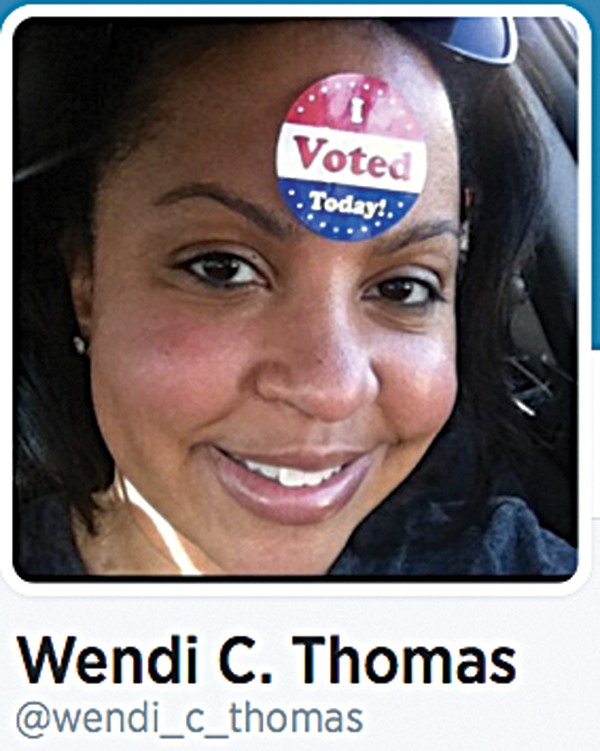
Wendi C. Thomas: So when you‘ve been in an environment where you felt unwelcome, what was it that made you feel that way? @FlinnShady
Shea Flinn: @wendi_c_thomas lots of reasons. A certain establishment never thought I was “hip” enough. Didn’t like preppy me.
WCT: So I get how that could be uncomfortable, @FlinnShady. I do. But…
WCT: It seems untoward to compare preppy/hipster to a legacy of racial discrimination/modern-day racially charged dress codes. @FlinnShady
SF: I was talking about feeling unwelcome as opposed to discrimination. I see them as very different.
It went on from there. Thomas and Flinn are unlikely to stop with the Twitter.

“Maybe we should have a Twitter chat where people can tune in,” Thomas said. “Wendi and Shea and who ever else is polite can join in. Appointment Twitter.”
— Joe Boone, @Memphidelity
#ilovememphis
Seeing the #ilovememphis hashtag on Twitter might be just another way to join a local conversation, but for some, it means much more than that. Holly Whitfield, who took over the blog about a year ago, said while she wasn’t around for the inception of the hashtag, she’s noticed how local Twitter users have utilized it.

Users will see everyday Memphians, businesses, and organizations all contributing to the conversation through the hashtag, spreading the love through photos, musings, and event postings. Even City Councilman Harold Collins gets in on the action.
“I see people using it in two different ways. One way is when they want to share on Twitter about an event or show. I think they use #ilovememphis because they know that their event is contributing to the cool things in Memphis to make it loveable,” Whitfield said. “The second way I see people use it is when they’re doing something fun that makes them genuinely love Memphis. It’s usually a photo of people having fun — like people at a pool party in Midtown.
“On my Friday post, I remind people to use #ilovememphis to share their pictures over the weekend. I think people are still using it to contribute to the idea that Memphis is loveable,” Whitfield said. “When somebody uses that hashtag, of course their followers will see it, and maybe they’re curious as to whether it’s an official hashtag — which it kind of is — and maybe they’ll look into it a little bit more.”
The I Love Memphis blog will celebrate its fifth birthday on August 17th at Wiseacre Brewing Company.
“When I first started, in my very first post, I said, ‘It’s no longer revolutionary to say I love Memphis,’ which is amazing. When the blog first started, it was. No one was saying that in such an outspoken way,” Whitfield said. “I no longer think it’s a ground-breaking thing, but I do think it’s important. Especially for Twitter. Sometimes it can get really heavy, so being able to see a simple, positive hashtag that is usually accompanied by actual content can be inspiring.”
— Alexandra Pusateri, @alexandrathegr8
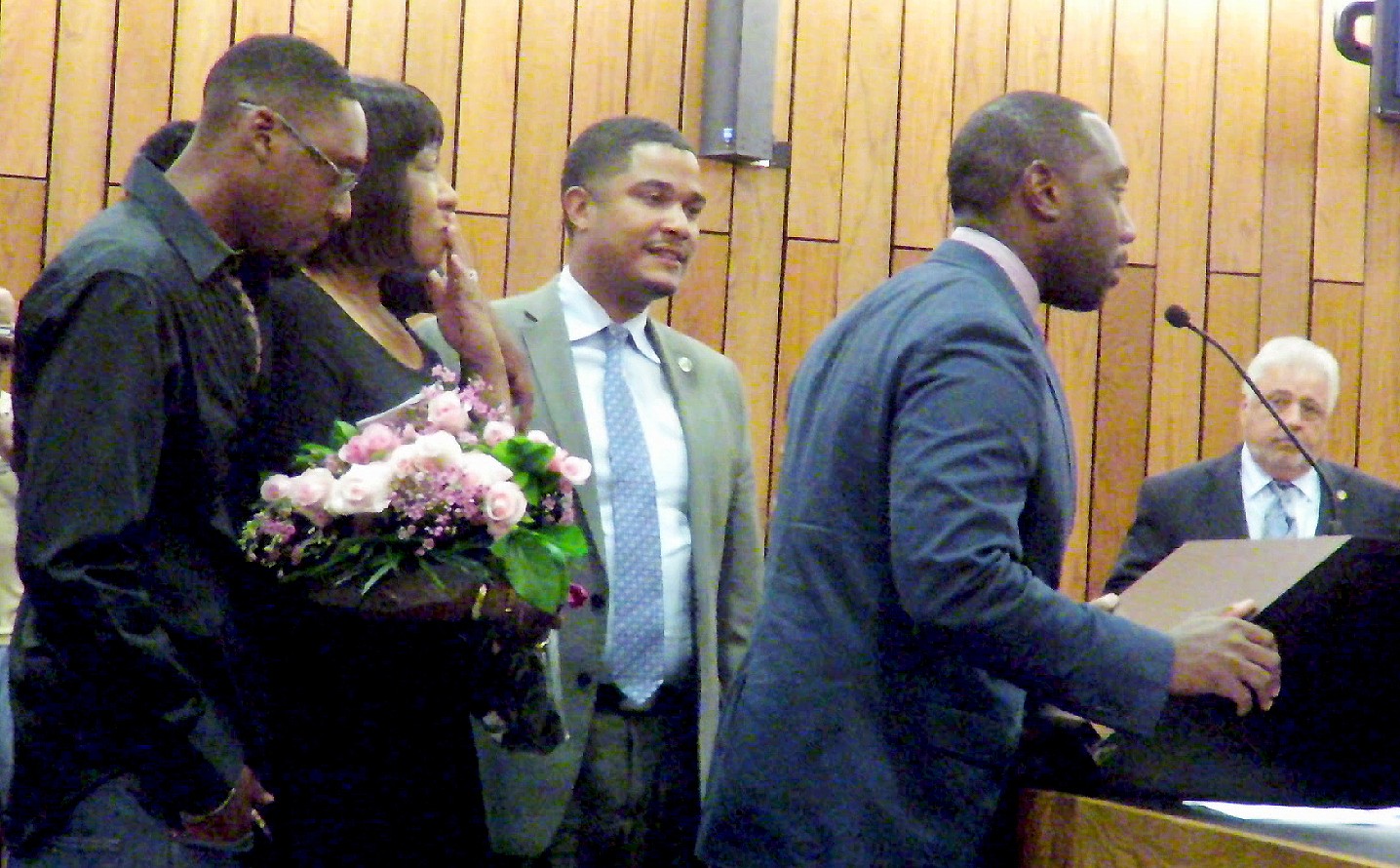 Jackson Baker
Jackson Baker 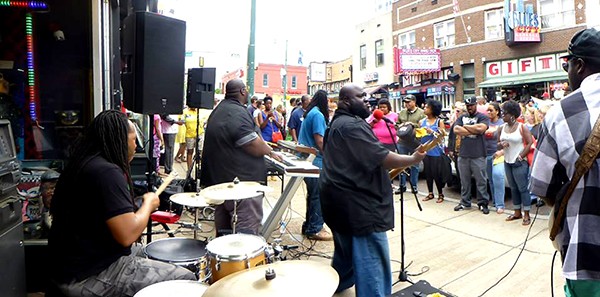

 Justin Fox Burks
Justin Fox Burks 









